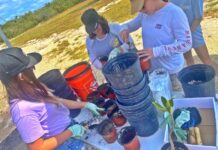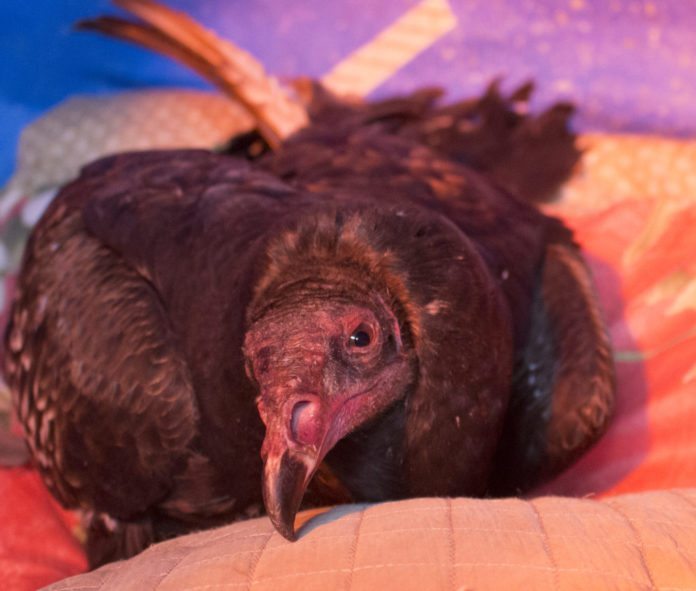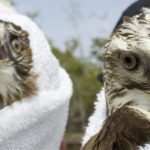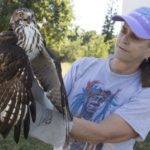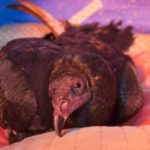Florida Keys Wildlife Rescue recently reported that turkey vultures in the Lower Keys are dying after eating poisoned rats. During a necropsy of four vultures, members cited fresh internal bleeding as evidence. One vulture, however, was rescued alive. Maya Totman said the bird — found by Kathy Gustafson — is improving slowly.
According to the Florida Keys Wildlife Rescue, the vulture was as close to death as any patient can be. Emergency medical treatment for this bird involved administering subcutaneous fluids, heat and oxygen. He was also given antidotes for poisoning, including Vitamin K, which counteracts the deadly effects of anticoagulant poisons, and Atropine, which can reverse the effects of organophosphates poisoning.
After an hour of intensive care, the bird’s condition didn’t change, but his crop (the pouch used to temporarily store food) had gotten much larger, indicating that the contents of the vulture’s stomach were coming back up. The bird needed to vomit, but in his condition he was unable to do so on his own.
“As you can imagine, a turkey vulture’s vomit reaches a whole new level of disgusting due to his diet,” said Totman. “However, these birds are absolutely integral to the health of our ecosystem because they eat carrion, dead things, in all stages of decomposition.”
Medical staff suspected that the bird had eaten a dead, poisoned rat and been poisoned himself.
“We grabbed gloves and face masks and held our breaths as we leaned the bird over the sink, and reached inside the vultures mouth to reach the crop, taking precautions to avoid the bird glottis and prevent him from choking,” Totman said. “I won’t ruin your appetite by describing what came out, but its texture and appearance was unusual, further confirming our suspicions that this bird had been poisoned.”
Totman said when the entire contents of the bird’s crop had been evacuated, he was given more fluids supportive care.
“We hope he can be returned to the wild,” she said.
Totman said the incident is an important warning for those who believe in bird conservation.
“Birds provide many economic benefits to humans including pest control, pollination, seed dispersal, ecotourism, and environmental monitoring and cleanup,” she said. “Perhaps more importantly, they add color, song, and beauty to our everyday lives. Florida Keys Wildlife Rescue wants to see all anticoagulant rodenticides taken off the market due to their dangerous impacts on pets, and wildlife.”
When wildlife or pets consume dead or dying rodents that have eaten rodent poison, the anti-coagulants in an animal’s system prevent blood from clotting. Symptoms include bleeding from the eyes and nose, lethargy and anemia.
For more information about the Florida Keys Wildlife Rescue, call 305-872-1982.
